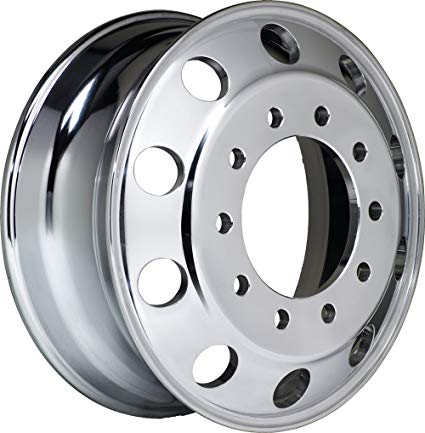
We have seen a large increase in demand for wheel finishing in the last year. From smaller custom wheel makers to large volume OEM caliber companies. There has been a general trend in some of the questions asked and in an effort to share the answers I will cover some of them here.
CNC style machines CAN in fact polish both cast and forged wheels. The myth so to speak has been that robots were the only real way with tumblers being second. That is just not true plain and simple. CNC style machines can be built for lower volume with 30 to 60 min cycle times to handle the lower volumes. This style machine would handle the lower volumes while giving a beautiful full mirror polish day in and day out. You can also build CNC style machines for the very high volume with a cycle time of 5 to 10 min per wheel or less. The flexibility in CNC allows it to be built around the need.
CNC style machines are in fact more simple to program than robotics in most cases. Our CNC machines are designed to be operated by people that know how to polish. You do not need special classes or systems to integrate our CNC style machines into your facility. Your current floor staff knows your parts and needs better than any one. Taking advantage of that experience and knowledge is very important. Some one who knows how to polish and can use a windows computer is all you need.
I will not argue that hand polishing is best. With experience you gain a "feel" for the parts be they wheels or any other part. That "feel" allows you to produce amazing parts in some cases. What I will argue is that polishing a 20x9 wheel is no easy task and that is a small wheel these days. The energy to hold that wheel while polishing alone takes a toll. The semi automated systems of lathes and other setups are not much better. You still have to be in close to the wheel and wrestle things in a lot of cases. Not to mention getting covered in that wonderful black and grey film while breathing it in. While hand polishing can produce a wonderful part some times it is just not worth the human toll.
CNC will also provide a consistent part. Also part of the human factor is consistency. No matter how good the person hand polishing is they will get tired as a day wears on. The parts finished in morning rarely match those done in the afternoon. Then look at parts across several people polishing they tend to not be the same either. One of the key points is that the CNC can produce the same part all day long. In custom wheels you will have that case where a customer damages a wheel. You then are faced with providing a repair or replacement depending on the situation. What are the odds of the finish on the repaired or replacement wheel matching the other 3? CNC allows that problem to be resolved by giving consistent finishes.
Cost is another point that is relative. If you are spending 2 hours polishing a wheel and can move to 20 min per wheel you just increased your volumes by a large percentage. Working with the 2 hours above a single person could produce 4 finished wheels a day. Moving to CNC with the same line of assumptions would mean 24 wheels finished by that same person in that same day. Adding an extra 20 finished wheels per day with the same labor costs is a big deal. Again following the same assumptions how many extra people would you need to add to gain that same 20 extra wheels a day? Well 5 more people should gain you the extra 20 wheels a day but what is the cost there? Polishing is not a glamorous job by any means and the turn over tends to be high as it is just a tough job. Now the 2 hours to finish a wheel and the 20 min are just examples to show a point. You may very well be faster or slower but the concept is the same.
The points above are some of the most common that I see and wanted to share them in hopes it would answer questions other may have. Feel free to send any questions you have as well I am happy to field them.
Joe Amick
AM Machinery Sales
Topics Insidermetal finishingwheelspolishingautomotive